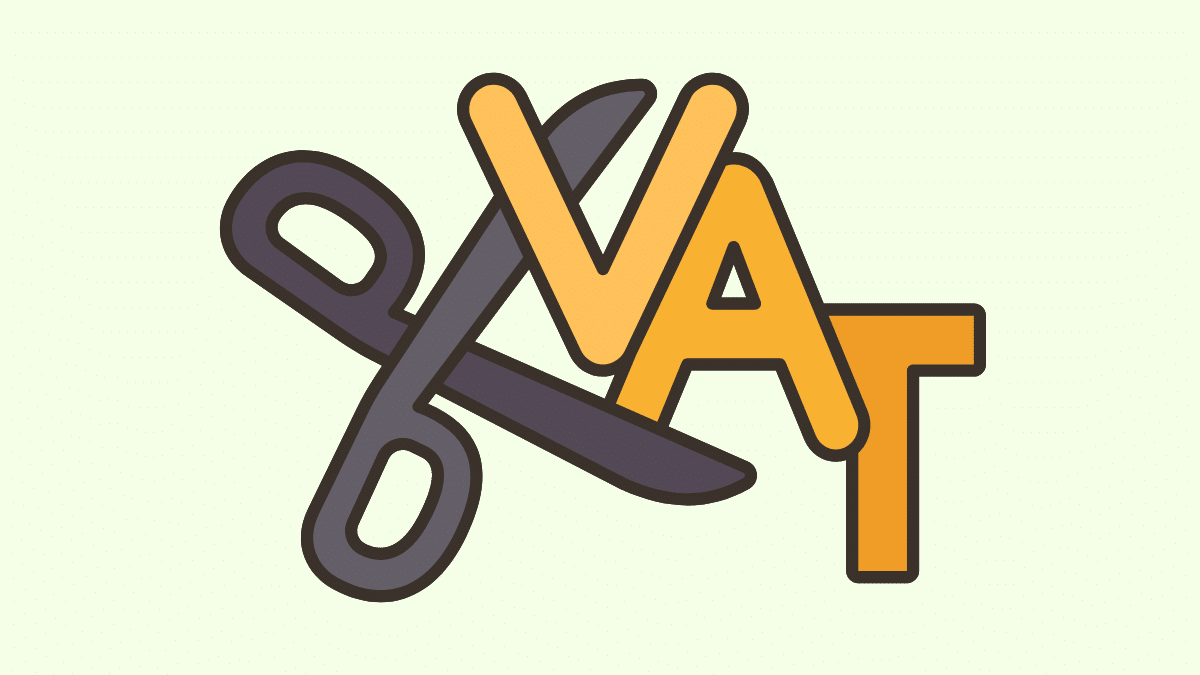
See the quirky side of UK taxes with the items that you have to pay VAT on. Find out what’s VAT-taxed and how it impacts your wallet.

£10 BONUS OFFER: Earn easy cash by watching videos, playing games, and entering surveys.
Get a £10 sign up bonus when you join today.
In the UK, VAT (Value-Added Tax) is a type of tax that’s added to the price of goods and services.
The standard rate is usually 20%, but some items have a reduced rate or are even VAT-free.
VAT is added to items that are considered a luxury.
But, some of the items that are taxed might seem a bit odd or unfair to many people.
Here are examples of things and necessities where the VAT charge might seem a bit ridiculous.
Sunscreen
Current VAT rate: standard rate of 20% VAT
I know we live in a country known for its rainy days more than its sunny ones, but we still need SPF protection.
Surely sunscreen isn’t meant to be a luxury due to health reasons?
Sunscreen is taxed at the standard rate, even though it’s an essential health-related item.
Children’s car seats
Current VAT rate: reduced rate of 5% VAT
Safety items like car seats protect little ones on the road.
And, ok, it’s been a few years since I had a baby, but I remember being told that you cannot let a newborn leave the hospital without a car seat!
While you don’t need to pay the full VAT rate, they’re not entirely exempt.
I don’t know about you, but I find it odd that such essential safety items such as safety seats, booster seats, and booster cushions for little children are taxed at all.
However, you pay zero VAT with other protective road-related items, such as motorcycle and bicycle helmets.
Loo roll
Current VAT rate: standard rate of 20% VAT
Each wipe is taxed – and at 20%.
Toilet paper is classed as a luxury by the government, so we have to pay extra.
But, as “Who Give A Crap” points out in their petition, caviar, helicopters and marshmallows are VAT-free (although, I’m not sure I’d like to use marshmallows for the same job)!
Hygiene products
Current VAT rate: standard rate of 20% VAT
While the famous “tampon tax” on menstrual products was abolished, other hygiene products like toothpaste and soap still carry VAT.
These are everyday essentials for maintaining health and hygiene.
With so many people struggling to get an NHS dentist appointment, perhaps this is one place the government could look to ease up on charging us?
In the past, Tesco reduced the cost by 20% (paying the VAT themselves) on lines of kid’s toothpaste and toothbrushes to make it more affordable for parents.
Glasses and contact lenses
Current VAT rate: reduced rate of 5% VAT (as long as they are sold with a prescription)
While there’s a reduced rate for glasses and contact lenses, it’s strange that these essential items for many people’s daily lives aren’t completely VAT-free.
They are medical necessities for those with impaired vision, and even with a low prescription you have to have them to drive.
But, the specs I wear are a luxury, obviously.
If you want to get glasses for fashion without a prescription (I’m sure there was a trend a while back) or standard sunglasses, you have to pay full VAT on them.
Bras
Current VAT rate: standard rate of 20% VAT
Bras are expensive, but seem to be a basic necessity for half the population.
Yet, there is a full rate of VAT on their sale.
Radiographers have been calling that they are changed to be exempt from the tax rules.
Home energy
Current VAT rate: reduced rate of 5%
Your gas and electricity bills have a reduced VAT rate, but heating and powering your home feels like a basic necessity in the grand scheme of things.
Why is there any VAT on this, especially during colder months?
There was talk and rumours of a temporarily reduction to 0% due to the energy crisis back in 2022, but we got the Energy Bills Support Scheme instead.
Incontinence products
Current VAT rate: standard rate of 20% VAT
While the “tampon tax” on menstrual products was removed in 2021, it only applies to menstrual flow or lochia.
Incontinence products have their part to play in helping with peoiple’s dignity, but they are specifically excluded from having a VAT reduction.
It’s a luxury item, apparently.
However, if the person buying them is disabled or has a chronic illnesses, they are able ot buy them without VAT – if you can find a retailer to do this.
Chocolate biscuits
Current VAT rate: standard rate of 20% VAT if covered in chocolate (zero rated for plain biscuits)
Did you know that most biscuits and cakes are VAT-free, but if they’re covered in chocolate, they’re taxed?
It’s a bit strange, right?
It means your plain digestive biscuit dodges the tax, but as soon as it’s dipped in chocolate, it’s considered a luxury and taxed.
It’s interesting to see how the idea of what is considered a “luxury” and what is a “necessity” plays out in the world of taxes.
But, things can and do change.
The removal of the tampon tax, because of such a big public push shows that we can make a difference.





